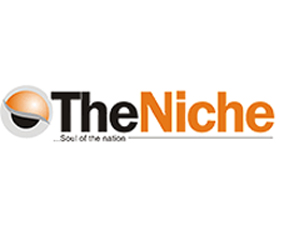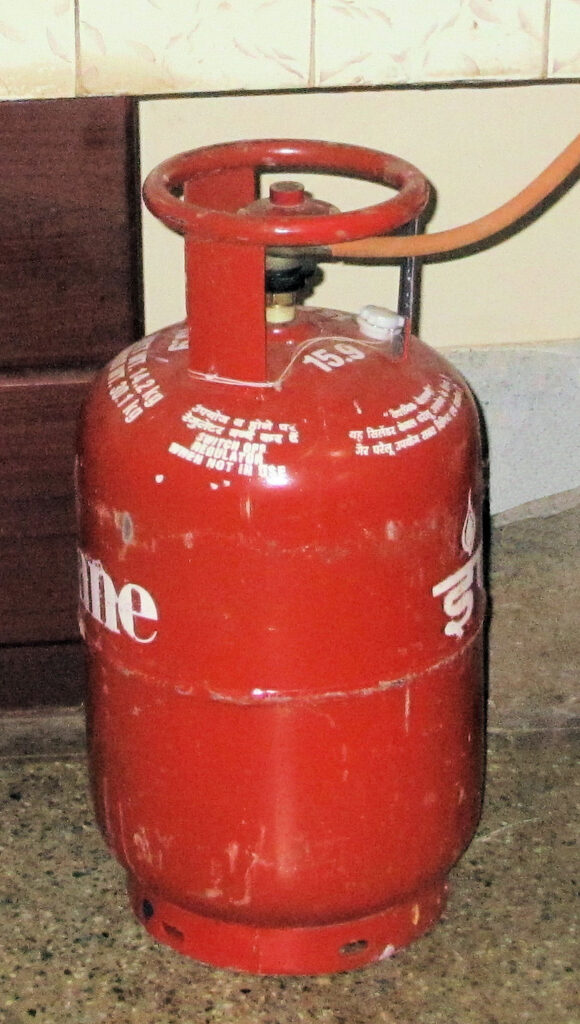By Jeph Ajobaju, Chief Copy Editor
A 7.5 per cent Value Added Tax (VAT) Abuja imposed on cooking gas has stoked more than 100 per cent price rise in eight months, with 12.5kg cylinder refill jumping from N3,500 to N7,200 and projected to reach N10,000 this December.
In cities and semiurban areas, middle consumers in large numbers have returned to the use of firewood and charcoal to cook food in homes and restaurants, posing environmental hazards besides the unbearable financial cost.
Petroleum Resources Minister of State, Timipre Sylva, says Liquefied Petroleum Gas (LPG), also called cooking gas, is deregulated by the government and it cannot remove the VAT – even if that means reducing human hardship.
Average price per litre of kerosene increased from N370.29 in June to N370.34 in July, according to National Bureau of Statistics (NBS) data, the price rising 7.31 per cent month-on-month (MoM) and 18.42 per cent year-on-year (YoY).
However, the real market price of kerosene, an alternative to cooking gas used by the poor, is N2,000 per five-litre keg. Which makes the street price N400 per litre.
Gross Domestic Product (GDP) rose 5.01 per cent YoY in the second quarter of 2021 (Q2 2021), in three straight quarters of growth after slumps in Q2 2020 and Q3 2020, says the NBS.
But the GDP figure is bizarre because it contradicts empirical evidence that, by all metrics, Nigerians have been getting poorer since Muhammadu Buhari became President six years ago.
By March this year, Buhari alone had obtained N12.31 trillion loans for Nigeria since June 2015, and plans to borrow more from local and foreign lenders.
Nigeria’s debt rose by N20.8 trillion to N32.92 trillion between June 2015 and December 2020, and to N33.11 trillion Q1 2021, as compiled by the Debt Management Office (DMO).
Debt servicing alone cost N1.8 trillion between January and May, not counting repayment of principal.
Buhari taxes citizens to repay wasted or stolen loans
Buhari is taxing Nigerians to death to service or repay loans taken by him, most of which get wasted or government officials steal through inflated real or fake contracts, or steal directly by dipping their hands in the till.
And he does not prosecute the thieves, some of whom are in his cabinet.
Buhari’s negligence, as well as direct and indirect taxation, have been stoking up every week – if not every day – since 2020 the prices of food, housing, transportation, health care, education, and all of the other basic human necessities.
Last month, the Socio-Economic Rights and Accountability Project (SERAP) filed a lawsuit against him for failing to probe N106 billion officially declared missing from 149 ministries, departments and agencies (MDAs).
Part of the grouse in the suit filed at the Federal High Court in Abuja is that Buhari failed to prosecute those responsible for the fraud and recover the missing public funds to reduce the pressure of borrowing more money.
The suit is sequel to confirmation by the Office of the federal Auditor General in its 2018 annual audited report that N105,662,350,077.46 of public funds are missing, misappropriated or unaccounted for across 149 MDAs, per Premium Times.
VAT implementation
The PUNCH reports that VAT on LPG imports was implemented about three weeks ago with dealers also asked to pay the tax on shipments dating back several months.
Nigeria imports about 70 per cent of LPG, the balance is supplied mainly by the Nigeria Liquefied Natural Gas (NLNG) company.
Investigation by The PUNCH shows that the cost of refilling a 12.5kg of cooking gas cylinder that was about N3,500 in December 2020 has risen to N6,800 in Abuja.
A resident along the Lagos-Ibadan Expressway said she refilled her 12.5 kg cylinder at N7,200 in Lagos on August 29. Dealers project it will cost N10,000 by December.
Operators said the price hike has made small businesses and homes in rural and semiurban areas to revert to firewood and charcoal, as cooking gas sale has plunged.
Liquefied Petroleum Gas Retailers Association of Nigeria (LPGRAN) National Chairman, Michael Umudu, listed three main reasons for the surge in price.
“First,” he explained, “about 70 per cent of the gas we consume in Nigeria is imported and importers have to contend with the high cost of foreign exchange [forex].
“Second, there is a rise in the price of petroleum products in the international market and because of that, the cost of LPG has equally gone up. So importers now pay more on imports.
“Third, the government added VAT on imported LPG about three weeks ago. It [VAT] is 7.5 per cent of the cost of the commodity and this [has] exacerbated the price hike of cooking gas in the past three weeks.”
Umudu told The PUNCH that before the introduction of VAT last month, forex and the cost of petroleum products on the international market had been the only two reasons for cooking gas price rise.
His words: “Around November/December last year, 12.5kg was sold at about N3,500, but in July [2021] it went up to around N5,500 and when VAT was introduced about three weeks ago, it now escalated to about N6,500 and above.”
“The price hike seems to be happening on a daily basis and nobody can tell when it will stop. There has been a lot of appeal to the government to find a way of persuading NLNG to increase its domestic supply so that the product can be affordable.
“NLNG supplies about 35 per cent of the gas we consume locally and that percentage is not adequate. And the gas sold by NLNG is even sold at international price and is priced in dollar, not naira.
Impact of VAT on gas import
Umudu said the cost of “20 metric tonnes [of LPG] is now in the average of about N8 million. Before VAT was introduced, the price of 20MT was around N6.8 million to N7 million, which was the highest price then.
“If you come to Lagos, you will see heaps of firewood like groundnut pyramids. Many people who use LPG to run their small businesses cannot cope again because of the price.
“They are in a crisis right now; some of them are now using firewood, others, charcoal.”
“Many people in the rural and semiurban areas are dropping their cylinders. Those who find it difficult to get alternatives are actually going through a very hard time.”
Nigerian Association of Liquefied Petroleum Gas Marketers (NALPGM) Executive Secretary, Bassey Essien, said the cost of 12.5kg could hit N10,000 by December.
“If by December the government has not addressed this surge, it [12.5kg] will be N10,000. We are not the one causing this, rather it is the government. We sell what we get,” he explained.
“The volume we produce in Nigeria is just about 40 per cent of the total consumption; the rest is imported. And you don’t have a forex window for these people to access to import gas.
“And secondly, you suddenly woke up and said you want to start imposing VAT on imported gas, which was removed several years back.
“And now, you didn’t even start it afresh, rather you said it is going to be in retrospect, starting from several months back.
“And you are imposing billions in taxes on gas imports. For instance, you ask one company to pay about N4 billion as tax, now if they pay that money, some other person needs to shoulder this cost.”
Abuja refuses to intervene
When Nigerian National Petroleum Corporation (NNPC) spokesman, Garba-Deen Muhammad, was asked what Abuja is doing about the price hike, he cited Sylva as saying that LPG is deregulated.
Muhammed, who served as the media aide to Sylva before moving to the NNPC, insisted that “The minister answered this question during his last press briefing two weeks ago.”
Sylva said at the briefing that “we are not in position to determine gas pricing because gas is not a regulated product.
“But, of course, we are also very concerned that prices are rising and so I am actually doing something about it in the interest of the ordinary Nigerian. I am calling some of the suppliers to discuss the reason for this hike.”
He insisted that intervention is outside government’s role.


